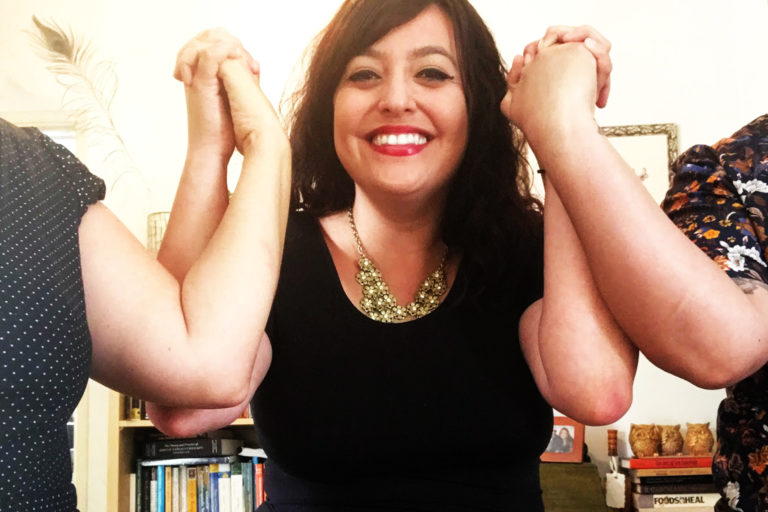Poly Therapists: How They Can Help Navigate Non-Monogamous Relationships
Welcome to the Topic “Poly Therapists: How They Can Help Navigate Non-Monogamous Relationships”
Introductiona
Polyamory is the practice of having multiple intimate relationships with the consent of all parties involved. This non-traditional approach to relationships presents unique challenges, such as communication, jealousy, time management, and boundary setting. Navigating these complexities can be difficult without proper support and guidance.
Poly therapists are mental health professionals who specialize in working with individuals and couples in non-monogamous relationships. They offer a safe and non-judgmental space to explore the dynamics of polyamory, address any issues that may arise, and provide guidance on how to maintain healthy and fulfilling relationships within this structure.
Specialized therapy is crucial in addressing the specific needs of those in polyamorous relationships. Poly therapists understand the complexities and nuances of non-monogamy and can provide tailored support to help individuals and couples navigate the challenges they may encounter. They can help improve communication, manage feelings of jealousy, establish healthy boundaries, and develop the necessary skills to maintain successful polyamorous relationships. In a society where monogamy is the norm, specialized therapy can play a vital role in supporting those who choose to practice polyamory.
Understanding Polyamory and Its Challenges
Polyamory is the practice of having multiple romantic relationships with the consent of all parties involved. This can take on various forms, such as hierarchical or non-hierarchical, open or closed, and solo or parallel polyamory. Some people may also practice relationship anarchy, where there are no rules or labels for their relationships.
Common challenges in polyamorous relationships include managing jealousy, communication issues, and navigating the dynamics of multiple relationships. Jealousy can arise due to feelings of insecurity or fear of being replaced. Communication issues may stem from balancing the needs of multiple partners and effectively expressing feelings and boundaries. Managing multiple relationships requires time and energy, and can be emotionally and mentally demanding.
It is important to recognize and respect the complexity of polyamorous relationships. Each relationship is unique and may require different boundaries and expectations. It is crucial to communicate openly and honestly, and to prioritize consent and respect for all partners involved. Understanding and respecting the unique dynamics of polyamorous relationships is essential for maintaining healthy and fulfilling connections.
The Role of Poly Therapists
A poly therapist is a mental health professional who specializes in working with individuals and couples in non-monogamous relationships. What sets them apart from traditional therapists is their specific training and understanding of the unique challenges and dynamics present in non-monogamous relationships.
Poly therapists undergo specialized training to gain an in-depth understanding of various forms of non-monogamy, such as open relationships, polyamory, and other consensual non-monogamous arrangements. They are knowledgeable about issues such as jealousy, communication, boundaries, and navigating multiple relationships.
Poly therapists provide a safe and non-judgmental space for their clients by approaching non-monogamous relationships with an open mind and a non-biased perspective. They understand that each individual and relationship is unique and work to create an inclusive and accepting environment for their clients.
Overall, poly therapists are equipped to support individuals and couples in non-monogamous relationships by offering a nuanced understanding of their experiences and providing guidance and tools to navigate the complexities of non-monogamy. They play a crucial role in offering support and validation to individuals and couples who may face stigma or misunderstanding in traditional therapy settings.
Communication and Conflict Resolution
Poly therapists can assist in improving communication skills among partners by providing a safe and non-judgmental space for each individual to express their thoughts, feelings, and needs. Through techniques such as active listening, mirroring, and validating each other’s perspectives, therapists can help partners develop a deeper understanding of one another and foster open and honest communication. Additionally, therapists can guide partners in setting clear and respectful boundaries for communication, ensuring that each person’s voice is heard and valued within the relationship.
When it comes to resolving conflicts in polyamorous relationships, therapists can offer specialized techniques that address the unique dynamics of multiple partnerships. This may include navigating jealousy, managing time and attention among partners, and fostering mutual respect and understanding. By promoting effective communication and conflict resolution strategies, therapists can help partners navigate the complexities of polyamorous relationships in a healthy and constructive manner.
Establishing and respecting boundaries is crucial in polyamorous relationships, and therapists play a key role in facilitating this process. By helping partners identify and communicate their individual boundaries, therapists can create a framework for healthy and respectful interactions within the relationship. Through ongoing discussions and support, therapists can empower partners to uphold each other’s boundaries, ultimately fostering a sense of trust, security, and understanding within the relationship.
Managing Jealousy and Insecurity
Poly therapists can help individuals and couples navigate feelings of jealousy and insecurity by providing a safe and non-judgmental space to explore these emotions. They can help clients identify the root causes of their jealousy and insecurity, such as past traumas or relationship patterns, and work on developing coping mechanisms and communication skills to address these feelings effectively. Therapists can also provide education on ethical non-monogamy and help clients understand the difference between healthy boundaries and toxic possessiveness.
Strategies for building trust and security in non-monogamous relationships may include open and honest communication, setting clear boundaries, and practicing active listening. Therapists can also guide clients in exploring their individual needs and desires, as well as finding ways to prioritize their own emotional well-being while also supporting their partners.
The role of self-awareness and self-care in managing emotional challenges cannot be understated. Therapists can help clients develop mindfulness practices, self-reflection techniques, and self-care routines to foster a strong sense of self and emotional resilience. By understanding their own triggers and reactions, individuals can take proactive steps to manage their jealousy and insecurity in healthy ways, and contribute to the overall well-being of their relationships.
Navigating Relationship Agreements
Creating and maintaining relationship agreements is essential for establishing clear expectations and boundaries within a relationship, particularly in polyamorous or non-monogamous dynamics. When developing these agreements, it’s crucial for all parties involved to openly communicate their needs, desires, and limits. This process may involve seeking the guidance of poly therapists who specialize in facilitating discussions about relationship dynamics and expectations. These therapists can help navigate potentially challenging conversations, mediate conflicts, and ensure that everyone’s voices are heard and respected.
As relationships evolve, it’s important to adapt and renegotiate agreements to reflect these changes. This may involve revisiting and updating the terms of the original agreement, as well as addressing any new dynamics, boundaries, or expectations that have emerged over time. Regular check-ins and open communication are crucial for ensuring that relationship agreements remain relevant and mutually beneficial for all parties involved.
Navigating relationship agreements in polyamorous or non-monogamous relationships requires ongoing effort, understanding, and flexibility. By seeking professional guidance when needed and being open to renegotiation as relationships evolve, individuals can create and maintain healthy, sustainable, and fulfilling connections within their unique relationship dynamics.
Challenges of Coming Out as Polyamorous
Coming out as polyamorous can bring about various challenges, especially when dealing with societal judgments and family dynamics. Many individuals and couples may feel the pressure to conform to societal expectations and face discrimination, misunderstandings, and stigma from those who do not understand or accept polyamorous relationships. Family dynamics can also present difficulties, as loved ones may struggle to accept the decision to pursue polyamory.
It is important for individuals and couples to build a supportive community and find resources to help navigate these challenges. Seeking out like-minded individuals or support groups can provide much-needed understanding, validation, and guidance. Additionally, finding resources such as books, online forums, and counseling services can offer helpful information and tools for managing the complexities of coming out as polyamorous.
Ultimately, the process of coming out as polyamorous requires courage, patience, and resilience in the face of societal judgments and family dynamics. By seeking support and resources, individuals and couples can find understanding and build a network of support to help them navigate the challenges and live authentically.
Intersectionality in Polyamory
Intersectionality in polyamorous relationships is a complex and important issue that must be addressed. It is essential to recognize and understand the diverse experiences and perspectives of individuals within the polyamorous community. This includes acknowledging the intersecting factors of race, gender, and sexual orientation, and how these can impact individuals’ experiences and challenges in polyamorous relationships.
Poly therapists play a crucial role in providing inclusive and culturally sensitive counseling to individuals in polyamorous relationships. This requires therapists to be aware of and sensitive to the unique challenges faced by individuals who belong to marginalized communities. Therapists must create a safe and nonjudgmental space where individuals can explore and address issues related to their intersecting identities and experiences in polyamory.
Understanding the intersectionality within polyamorous relationships is vital for creating an inclusive and supportive community. It is important to amplify the voices of those who belong to marginalized communities within the polyamorous community and to prioritize their experiences and needs. By recognizing and addressing issues of intersectionality, polyamorous relationships can become more equitable, inclusive, and supportive for all individuals involved.
Finding the Right Poly Therapist
When searching for a therapist who specializes in non-monogamous relationships, it is important to utilize resources specifically tailored to this community. Online directories such as the National Coalition for Sexual Freedom’s Kink-Aware Professionals or the Polyamory-Friendly Professionals Directory can be helpful in identifying therapists who are knowledgeable and open-minded about non-monogamous relationships.
When vetting potential therapists, it is essential to ask specific questions to ensure they are a good fit. Some relevant questions may include inquiring about their experience working with non-monogamous clients, their understanding of polyamory and ethical non-monogamy, and their approach to addressing jealousy and communication within non-monogamous relationships.
Additionally, seeking recommendations from other individuals in the poly community or from poly-friendly support groups can also be beneficial in identifying mental health professionals who are supportive and understanding of non-monogamous dynamics.
In summary, it is crucial to use specialized resources, ask targeted questions, and seek recommendations from the poly community when searching for a therapist who is knowledgeable and supportive of non-monogamous relationships.
Conclusion
Seeking therapy with a poly-specialized therapist offers numerous benefits for individuals and couples navigating non-monogamous relationships. These therapists have a deep understanding of the unique challenges and dynamics of polyamory, and can provide tailored support and guidance. They can help clients navigate jealousy, communication issues, and boundary setting, while also addressing any individual mental health concerns.
For individuals and couples in non-monogamous relationships, it’s important to seek support and guidance when navigating the complexities of multiple partnerships. Therapy can provide a safe space to explore emotions, fears, and desires, and can help foster healthy and fulfilling relationships.
In conclusion, prioritizing mental health is crucial for maintaining healthy and fulfilling polyamorous relationships. Seeking therapy with a poly-specialized therapist can provide valuable support, insight, and tools for individuals and couples to navigate the challenges and complexities of non-monogamous relationships. It’s important to prioritize mental well-being in order to build and maintain strong and healthy connections with multiple partners.
Compassionate Guidance: The Journey to Understanding with Poly Therapists
Navigate the complexities of non-monogamous relationships with the expert guidance of poly therapists, who bring understanding, support, and insight to every twist and turn. SwingTowns welcomes you to a community where growth, learning, and the pursuit of happiness in polyamory are celebrated. Begin your journey towards deeper connections and self-awareness by signing up for a free account on SwingTowns today. Let’s explore the paths of love with open hearts and minds, supported by the wisdom of those who know them best.
Swingtowns is incredible, I have met many awesome couples and single females on here. I recommend this site to anyone in the lifestyle! -MrMsBullDurham







